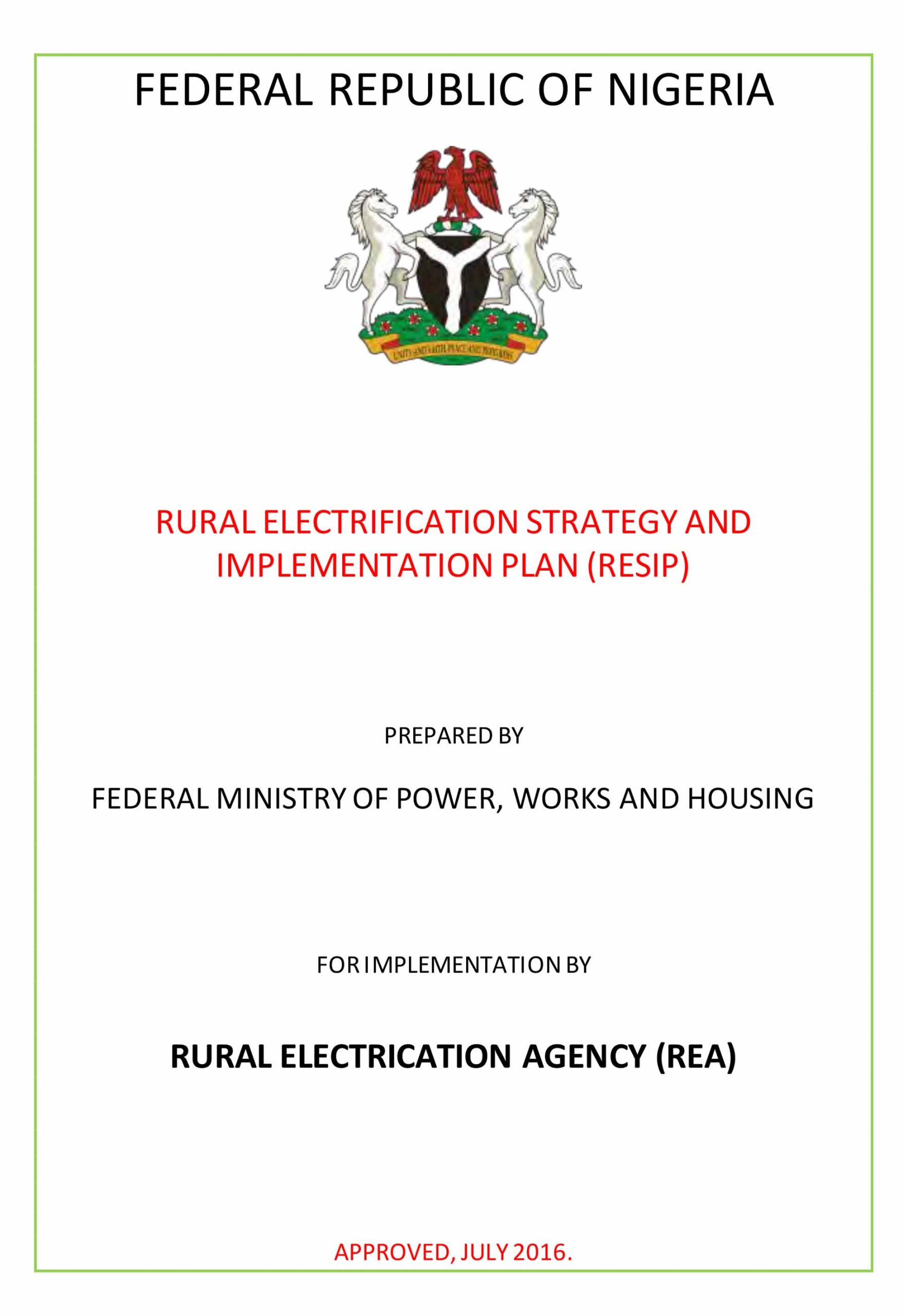Introduction
The National Electric Power Policy (NEPP) 2001 states “The primary objective of the Nigeria Rural Electrification Programme is to expand access to electricity as rapidly can be afforded in a cost-effective manner”.
In March 2005, the Federal Government of Nigeria (FGN) passed the Electric Power Sector Reform Act 2005 (EPSR Act 2005), which established the legal foundation for reform of the Nigerian Electricity Supply Industry (NESI), including the establishment of an independent regulatory body, the Nigerian Electricity Regulatory Commission (NERC), unbundling and corporatization of the national electric utility, National Electric Power Authority (NEPA) and the creation of Successor Companies that are now privatized.
It also provides the legal foundation for the establishment of the Rural Electrification Agency (REA), a governmental body charged with designing and implementing strategies to achieve rural access to electricity.
The EPSR Act 2005 provides the framework for the Government’s approach to rural electrification; however, few details on its implementation are contained in the legislation. The FGN’s Rural Electrification Policy outlines the Government’s objectives, goals, and policies regarding rural electrification. The Policy, in addition to other key documents on regulation, funding, and institutional development, details the institutional framework and procedures to be pursued in order to achieve the objectives of the Government’s rural electrification program.







